Discover if Libya's sands whisper tales of biblical times, unveiling a connection between ancient scriptures and this North African land.
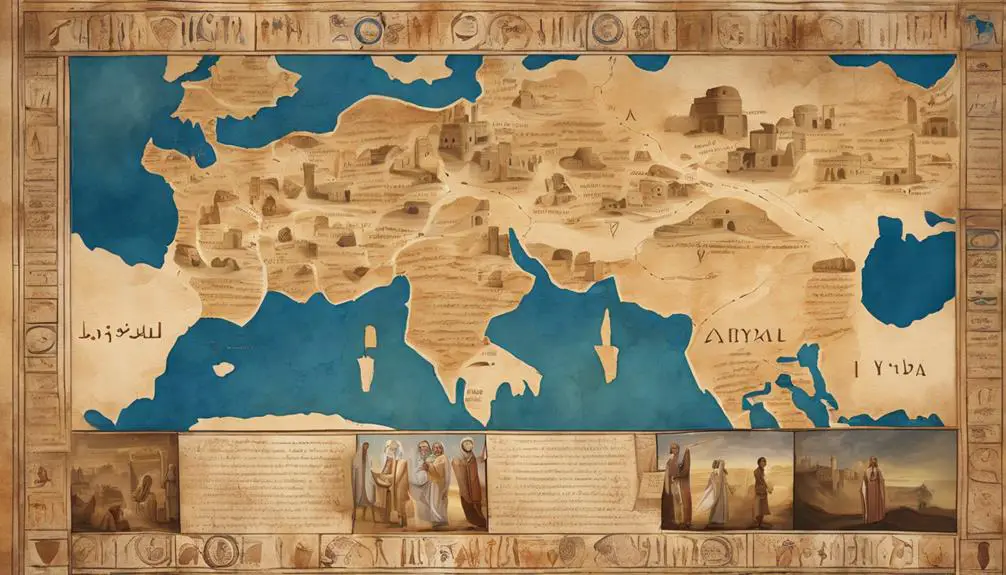
Is Libya Mentioned in the Bible
Imagine walking through the arid landscapes of North Africa, the sands of time whisking away beneath your feet, and you stumble upon the ancient lands mentioned in the Bible. You're likely wondering if Libya, with its rich history and strategic location, finds its name etched within the sacred pages.
The Bible, a tapestry of historical and spiritual narratives, references various regions and peoples, but does it specifically mention Libya? As you explore the biblical name for Libya, sift through ancient texts, and understand its geographical context, you'll uncover connections that might illuminate how this North African country fits into the biblical narrative.
Let's embark on a journey to decipher these historical and spiritual links, uncovering insights that bridge the ancient world with today's understanding of biblical geography.
Key Takeaways
- Libya is referred to as 'Put' or 'Phut' in the Bible, linking it to ancient scriptural contexts.
- Biblical references to 'Put' showcase Libya's historical and cultural significance in ancient times.
- Scholarly efforts to understand 'Put' enhance our knowledge of Libya's role in biblical narratives.
- Ancient texts and archaeological findings support the identification of 'Put' with modern-day Libya.
The Biblical Name for Libya
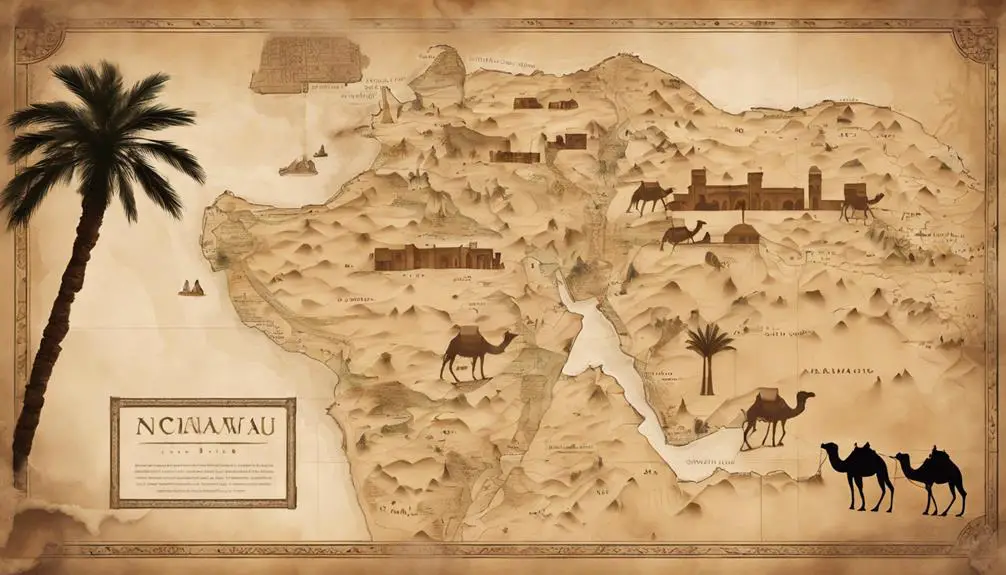
In the Bible, Libya is referenced under the name 'Put' or 'Phut,' a term that scholars believe denotes the region or people associated with modern-day Libya. This identification isn't without its complexities, primarily due to the evolution of Libyan dialects and scriptural discrepancies that have occurred over millennia.
When you delve into the ancient texts, you'll find that these references are scattered across various books, each providing a glimpse into the historical and geopolitical significance of Libya during biblical times.
The challenge in accurately identifying 'Put' or 'Phut' as Libya lies in the linguistic and cultural shifts that have shaped the region. Libyan dialects have evolved significantly, complicating efforts to trace these ancient references directly to their modern counterparts. Moreover, scriptural discrepancies arise from variations in the translation and interpretation of ancient texts. These discrepancies often lead to debates among scholars regarding the precise locations mentioned in the Bible.
Analyzing these references requires a nuanced understanding of historical linguistics and an appreciation for the complexities inherent in translating ancient texts. You're navigating a field where linguistic evidence intersects with archaeological findings, each shedding light on the other. This scholarly pursuit enriches your understanding of the Bible's historical context, offering insights into the ancient world that shaped its narratives.
Ancient Texts and Libya

Exploring the mentions of 'Put' or 'Phut' offers a gateway into understanding how Libya is woven into the fabric of ancient texts. These references illuminate Libya's historical and cultural contexts within seminal religious and historical manuscripts. When diving into this exploration, you'll uncover that:
- The depiction of Libyan deities in these texts highlights the region's rich mythological tapestry, underscoring its integral role in the ancient religious landscape.
- Manuscript preservation efforts reveal the challenges and triumphs in safeguarding Libya's historical legacy, showcasing the meticulous work undertaken to maintain the integrity of these ancient documents.
- The narratives within these manuscripts provide insights into the geopolitical and cultural interactions between ancient Libyan civilizations and their neighbors, offering a nuanced view of historical dynamics.
- Scholarly analyses of these texts have led to a deeper understanding of ancient Libyan society, its beliefs, and its contributions to the broader historical narrative.
This scholarly journey through ancient texts not only enriches our understanding of Libya's place in history but also emphasizes the importance of preserving these valuable manuscripts. Through them, we gain insights into the complexities of ancient societies, including their religious practices, social structures, and interactions with neighboring cultures.
Geographical Context
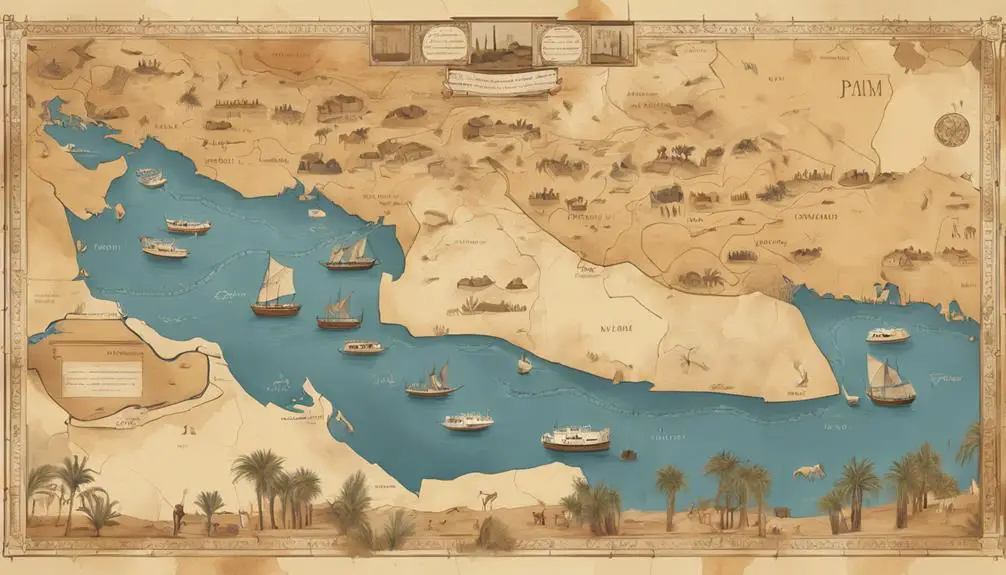
Understanding the geographical context is crucial when examining how Libya is referenced within ancient texts, as it provides essential insights into the region's historical significance and its interactions with surrounding civilizations. Libya, located in North Africa, boasts a vast landscape that includes the harsh Libyan deserts, yet it benefits from its Mediterranean proximity, which has historically facilitated trade and cultural exchanges.
Feature |
Description |
Impact on Historical Significance |
|---|---|---|
Libyan Deserts |
Vast, arid regions that dominate Libya's interior. |
Served as natural barriers and routes for caravans. |
Mediterranean Proximity |
Northern border along the Mediterranean Sea. |
Enabled trade and interactions with Europe and the Near East. |
Strategic Location |
Bridge between Africa and Europe. |
Made it a crossroads of civilizations and trade routes. |
Climate |
Primarily arid with Mediterranean influences in the north. |
Influenced settlement patterns and agricultural practices. |
Libya's geographical features have not only shaped its own history but also its relationships with neighboring regions. The combination of formidable deserts and strategic Mediterranean coastline has positioned Libya as a significant player in the narratives of ancient civilizations, including those recorded in biblical times. Understanding this context enriches our comprehension of Libya's mentions in ancient texts, underlining the importance of geography in historical narratives.
Notable References
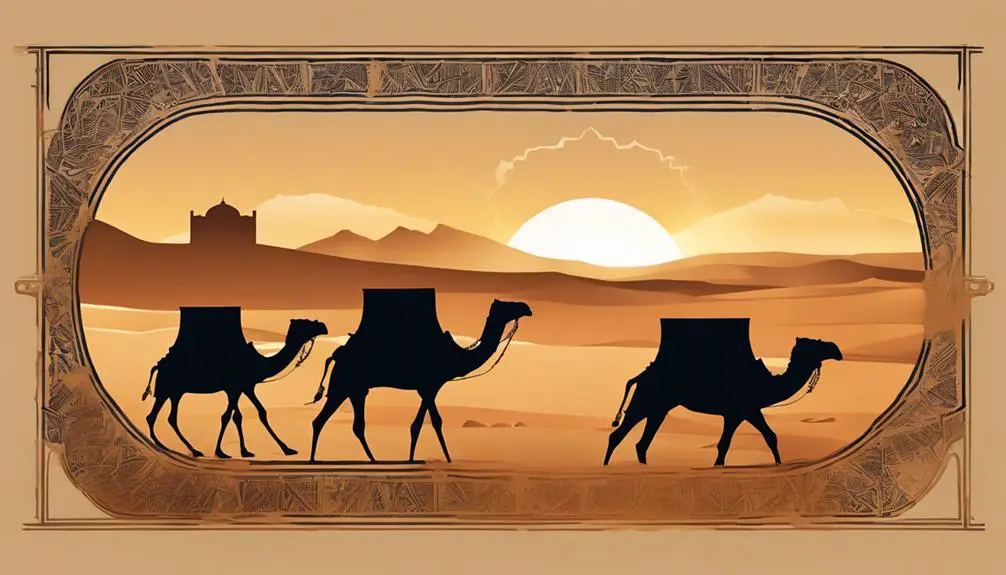
Several references to Libya, or regions historically associated with it, are found within the Bible, highlighting its interaction with Biblical figures and events. These passages not only underscore the geographical relevance of Libya but also its cultural and prophetic significance within the biblical narrative.
- Cultural Influences: Libya's mention alongside nations like Egypt and Cush in the Bible underscores its integration into the ancient Near Eastern world, suggesting a web of cultural exchanges and influences. These interactions are pivotal in understanding the broader historical and cultural contexts of biblical texts.
- Prophetic Implications: Prophecies in the Bible mentioning Libya (or regions linked to it) often serve as a vehicle for conveying messages of divine judgment or redemption. These references are crucial for interpreting the prophetic literature's broader themes and the role of nations in God's eschatological plans.
- Geopolitical Context: Libya's biblical references provide insights into the geopolitical landscape of the ancient world, revealing its interactions with Israel and other significant powers.
- Spiritual Symbolism: In some instances, Libya's mention may carry symbolic weight, contributing to the Bible's rich tapestry of spiritual and moral lessons.
These references offer a glimpse into how Libya's historical presence resonated within the biblical worldview, presenting a multifaceted portrait that encompasses cultural, geopolitical, and spiritual dimensions.
Historical Significance
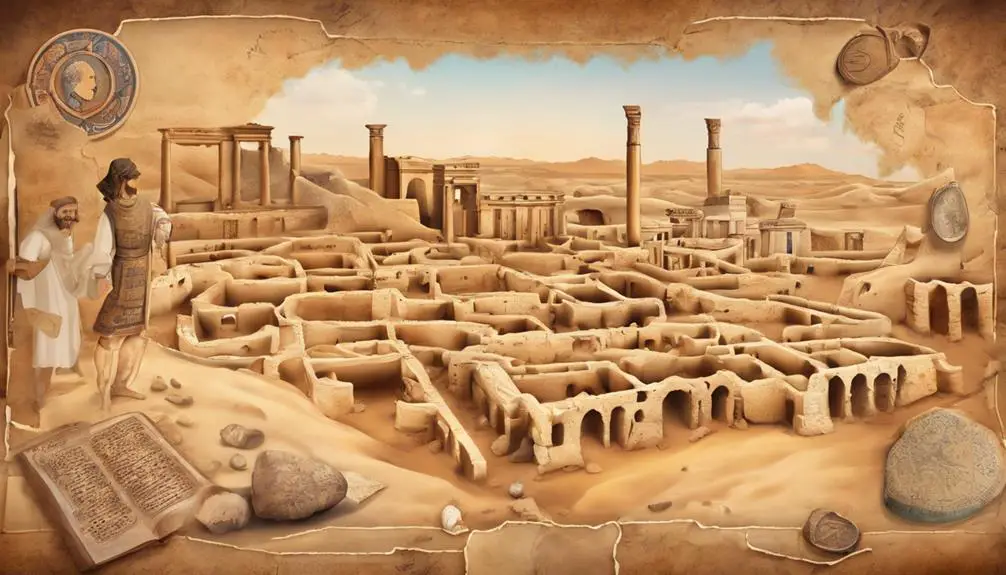
Delving into the historical significance of Libya as mentioned in the Bible reveals its critical role in the ancient geopolitical and cultural landscapes. The references to Libya, or put differently, the territories and peoples associated with ancient Libya, highlight its position as a significant player in the narratives of power, trade, and religious exchanges that shaped the Mediterranean basin. Libyan culture, deeply intertwined with the broader North African and Near Eastern tapestries, contributed to the rich mosaic of civilizations that the Bible encapsulates.
Your understanding of the biblical mentioning of Libya isn't complete without appreciating the influence of Libyan religious practices on the region. These practices, reflective of the diverse spiritual landscape of the ancient world, offer insights into the ways religious beliefs and rituals crossed paths and influenced one another across borders. The intermingling of Libyan religious traditions with those of their neighbors underscores a historical narrative of exchange and adaptation.
Analyzing Libya's biblical mentions, you're not just tracing the outlines of a country. You're piecing together a segment of the world's religious and cultural history, where Libyan culture and religious practices play indispensable roles in the broader human story.
Modern Interpretations

Reflecting on the historical significance of Libya as mentioned in the Bible, it's crucial to also consider how modern scholars interpret these references in light of contemporary cultural and theological perspectives. Today's interpretations often diverge, highlighting the complexity of ancient texts within a modern context. This discussion encompasses a range of viewpoints, from literal to metaphorical understandings, and touches on broader issues such as:
- The role of geographical references in biblical narratives and their symbolic meanings.
- How contemporary cultural impacts shape the understanding of ancient texts.
- Theological debates surrounding the inclusion and interpretation of specific regions like Libya.
- The importance of historical and archaeological research in informing modern readings of the Bible.
These elements underscore the dynamic nature of biblical interpretation. Scholars lean on a variety of disciplines, from linguistics to archaeology, to uncover how references to Libya and other regions should be understood today. This approach not only enriches our comprehension of the text but also fosters a deeper appreciation for the interplay between ancient writings and contemporary beliefs, revealing the Bible's enduring relevance in a constantly evolving cultural and theological landscape.
Frequently Asked Questions
How Has the Perception of Libya's Mention in the Bible Changed Among Different Religious Denominations Over Time?
You've observed how interdenominational debates have evolved regarding the mention of specific locations in Scripture translations, including references to ancient regions.
Over time, different religious denominations have diverged in their interpretations and importance placed on these mentions.
This divergence reflects broader theological views and historical understandings, impacting how scholars and believers alike perceive the biblical significance of these regions.
The analysis of such changes offers insights into the dynamics of religious scholarship and belief.
Are There Any Archaeological Discoveries in Libya That Have Provided Further Insight Into Its Biblical Relevance?
Yes, archaeological discoveries in Libya, especially Libyan pottery and remnants of coastal settlements, have shed light on its historical connections. These findings offer clues about ancient trade routes and cultural exchanges, providing a deeper understanding of the interactions between different civilizations.
How Do Contemporary Libyan Cultures Reflect or Acknowledge Their Biblical Mentions or Historical Biblical Significance?
You'll find that contemporary Libyan cultures subtly reflect their historical significance through cultural festivals and traditional crafts. These elements often carry undercurrents of stories and traditions that, if you look closely, hint at their ancient roots, possibly including their biblical mentions.
What Role Does Libya Play in Biblical Prophecy, Especially in Interpretations Related to the End Times?
In biblical prophecy, Libya's role is intricately tied to prophetic symbols and eschatological alliances, particularly within end times interpretations.
You'll find that scholars analyze Libya's mention as part of a coalition of nations in prophetic scenarios, suggesting its participation in significant events leading up to the end times.
This analysis often dives into the symbolic meanings attached to Libya and its alliances, offering insight into the broader prophetic landscape outlined in biblical texts.
How Do Non-Biblical Religious Texts or Traditions View or Reference the Ancient Region Corresponding to Modern-Day Libya?
You'll find that non-biblical religious texts and traditions, including Islamic perspectives, often reference the ancient region now known as Libya. These ancient myths and texts provide a rich tapestry of historical and spiritual connections to the land.
Through a scholarly lens, it's evident these narratives weave together diverse cultural insights, highlighting Libya's significance in a broader religious and mythological context, far beyond its mention or absence in biblical scriptures.
Conclusion
In conclusion, you've explored how Libya, under its ancient moniker, threads through biblical narratives. You've journeyed from ancient texts to geographical insights, uncovering notable references that underscore its historical significance. You've dissected modern interpretations, revealing how centuries-old mentions resonate today.
This scholarly voyage illustrates that Libya's biblical presence isn't just a footnote in history; it's a testament to its enduring legacy. Through parallel exploration of texts, geography, and interpretations, you've seen how Libya's past informs our understanding, bridging ancient wisdom with contemporary insights.



Sign up